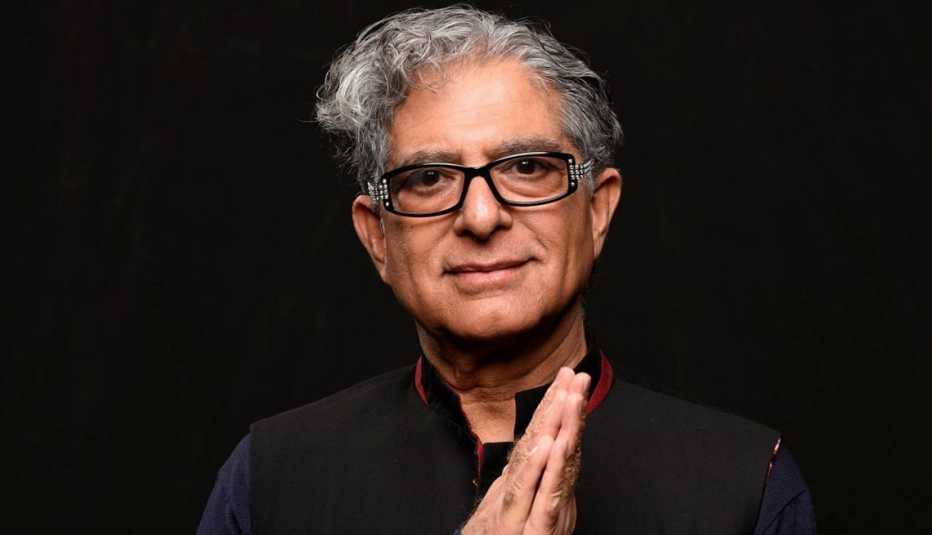AARP Hearing Center


Deepak Chopra says he was inspired to write his 91st book, Total Meditation, by the many people who approach him daily to say they don't have time to meditate but would like to reap the benefits.
With a similar payoff in mind, AARP caught up with the author and guru to hear why meditation later in life is so beneficial and how to combat anxiety in difficult times. This interview has been edited for length and clarity.
What are the benefits of meditation, especially for someone over 50?
Meditation slows down the aging process at a very fundamental level. We did a study with [biological researcher] Elizabeth Blackburn, the Nobel laureate, that showed that attending a meditation retreat increased participants’ levels of telomerase, the enzyme that regulates biological aging in the body. There's no drug that does that. Meditation also decreases things like chronic inflammation in the body and can help regulate hormones.
As people grow older, they can experience what we call existential depression because they start worrying about infirmity and death. So meditation becomes a very important tool in also decreasing anxiety and depression.
How would you describe meditation to someone who has never tried it or might be skeptical?
A deep restful relaxation, but without going to sleep. Meditation and mindfulness give us an experience of what we call self-awareness. Without self-awareness, we make robotic decisions from a panic mode based on past memory and past experience. Meditation puts the pause button between stimulus and response.



































































More on health
Stressed Out? Take a Breather With These Meditation Apps
A short, guided time-out might be just the ticket to calm your always-on mindSeven Ways to Handle Anxiety During the Coronavirus Outbreak
Uncertainty and fear are major triggers. Here's how to cope